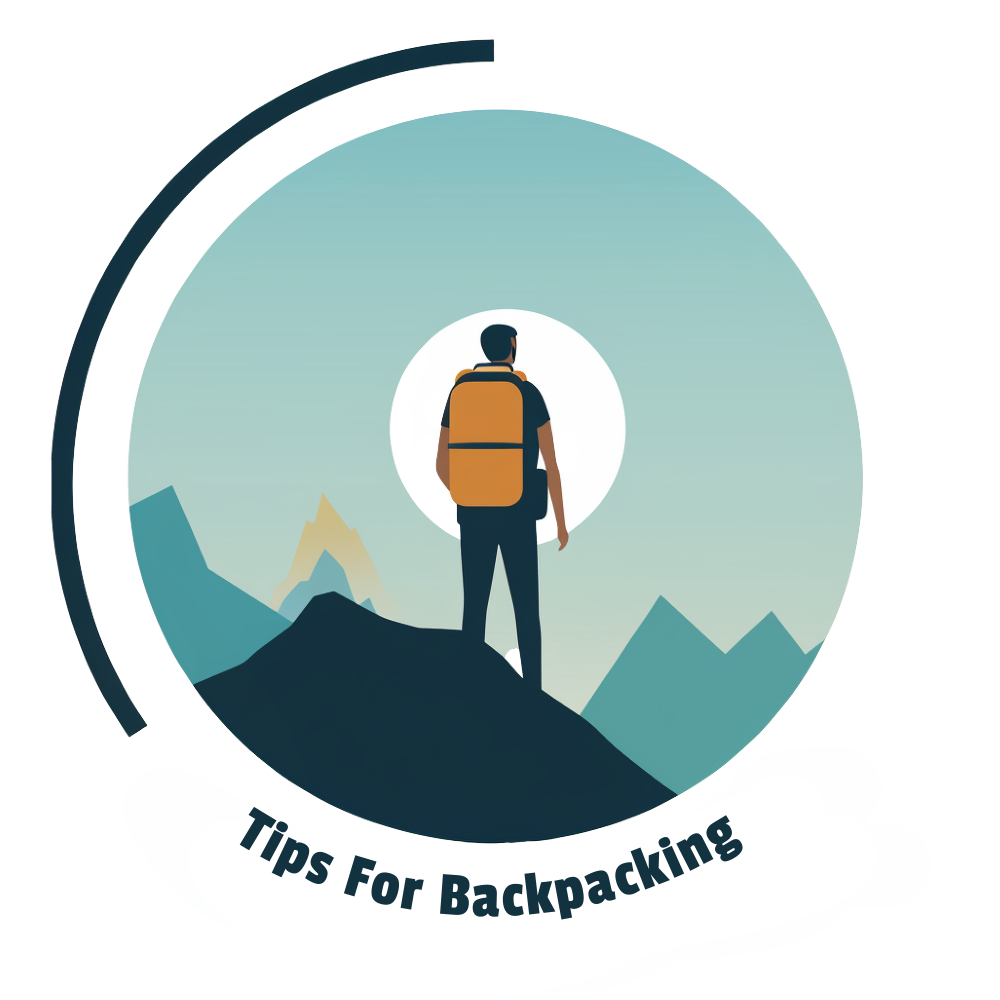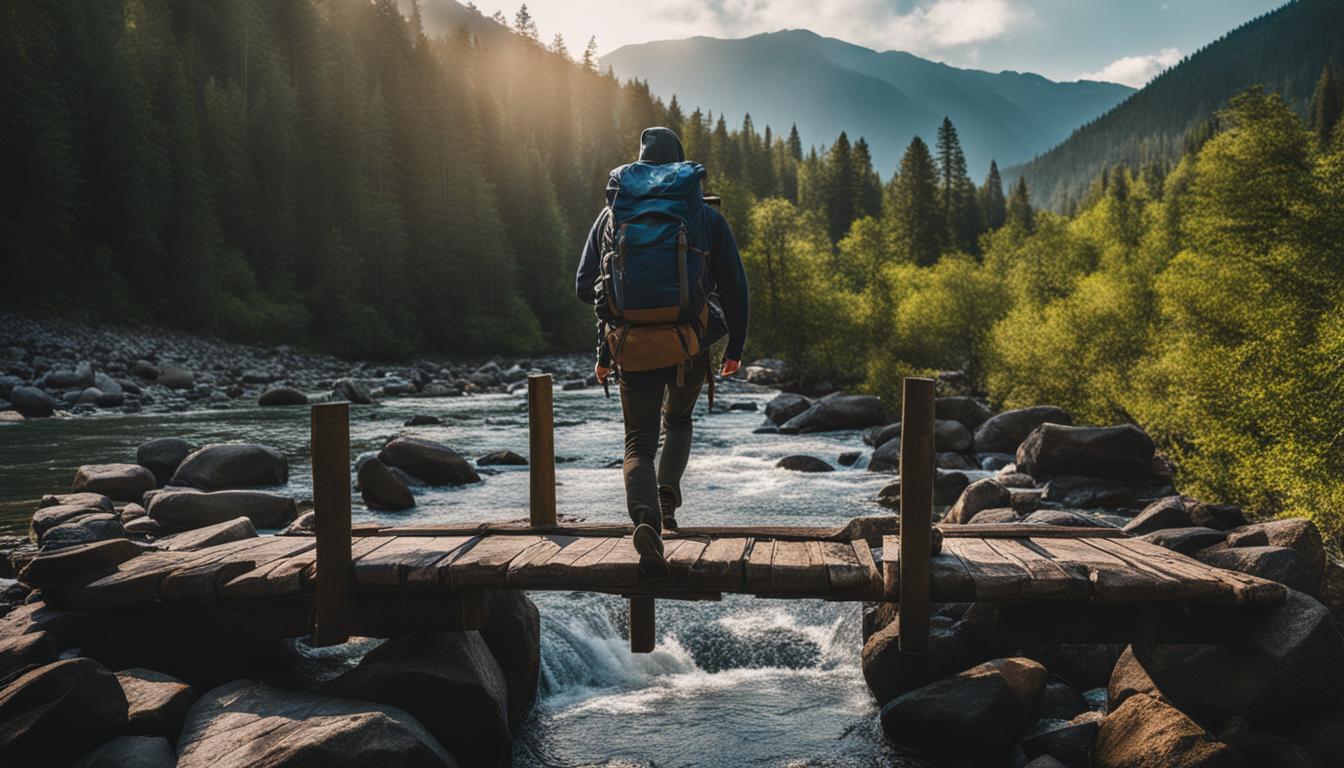Are you ready to embark on your first backpacking adventure? Whether you’re seeking an exhilarating escape into nature or simply want to challenge yourself, backpacking can be a rewarding experience. As a beginner, it’s essential to equip yourself with the right knowledge and gear to ensure a safe and enjoyable journey.
In this comprehensive beginner’s guide, I’ll share invaluable tips and insights to help you navigate the exciting world of backpacking. From choosing the right backpack to selecting beginner-friendly hiking trails, you’ll find everything you need to kickstart your backpacking journey.
Key Takeaways
- Research and choose a trail that inspires you or has a personal connection.
- Utilize hiking apps to find well-established routes.
- Start with trails that have other hikers around for added comfort.
- Gradually increase the distance you cover as you gain experience.
- Study trip reports and topo maps, seek advice from experienced backpackers.
Essential Gear for Backpacking Beginners
When venturing into the world of backpacking, having the right gear is essential for a safe and enjoyable experience. As a beginner, it’s important to pack wisely and choose gear that will meet your needs without weighing you down. Here is an essential backpacking gear checklist to ensure you’re well-prepared for your adventure:
Backpack:
Choose a backpack that fits well and can comfortably carry all your gear. Look for one with adjustable straps, multiple compartments, and a supportive frame. Consider renting or borrowing a backpack if you don’t have one already.
Tent:
Invest in a lightweight and compact tent that provides enough space and protection from the elements. Look for a tent that is easy to set up and take down, and offers good ventilation.
Sleeping Bag and Sleeping Pad:
Choose a sleeping bag that is suitable for the expected weather conditions. Look for one that is lightweight, insulated, and compressible. Don’t forget to pack a sleeping pad to provide comfort and insulation from the cold ground.
Cooking Gear:
Pack a lightweight and efficient backpacking stove, along with cooking gear such as pots, pans, utensils, and a portable water filter or purifier. These items will allow you to cook meals and safely filter water during your trip.
Clothing and Footwear:
Choose appropriate clothing and footwear based on the weather conditions and terrain of your backpacking destination. Opt for moisture-wicking and quick-drying materials, and don’t forget to pack layers for added versatility.
Hiking and Camping Essentials:
Don’t overlook the importance of packing essential items such as a first aid kit, navigation tools (maps, compass, GPS), headlamp or flashlight, fire starter, multi-tool, and emergency whistle. These items will help you stay safe and be prepared for any situation that may arise.
By ensuring you have the essential backpacking gear listed above, you’ll be well-equipped to embark on your backpacking adventure with confidence. Remember to pack smart, stay safe, and enjoy the great outdoors!
How can I use the information in the Quick and Easy Backpacking Camp Setup Guide as a beginner backpacker?
As a beginner backpacker, the Quick and Easy Backpacking Camp Setup Guide is an invaluable resource for learning essential backpacking camp setup tips. This comprehensive guide provides step-by-step instructions for setting up a campsite, choosing the right gear, and ensuring a safe and enjoyable backpacking experience.
Key considerations and tips for backpacking beginners
When it comes to backpacking, safety should always be a top priority. As a beginner, there are a few key considerations to keep in mind. First and foremost, make sure to let someone know your itinerary and expected return. It’s important to have a support system in place, just in case anything goes wrong.
In addition to personal safety, it’s crucial to respect and protect the environment. Familiarize yourself with Leave No Trace principles, which promote responsible outdoor practices. This includes properly disposing of waste, minimizing campfire impact, and staying on designated trails.
Now let’s talk about something delicious – backpacking meals! As a beginner, it’s important to plan and pack nutritious yet lightweight meals. Consider dehydrated meals, energy bars, nuts, and other high-calorie foods that are easy to carry and require minimal preparation. Don’t forget to pack a stove or cooking gear if you plan on preparing meals on the trail.
Lastly, it’s essential to develop basic navigation skills. Make sure to have the necessary maps, GPS devices, or navigation apps to ensure you stay on the right track. This will not only prevent you from getting lost but also help you explore new areas confidently. Embrace the adventure, be prepared, and enjoy the serenity of nature.

